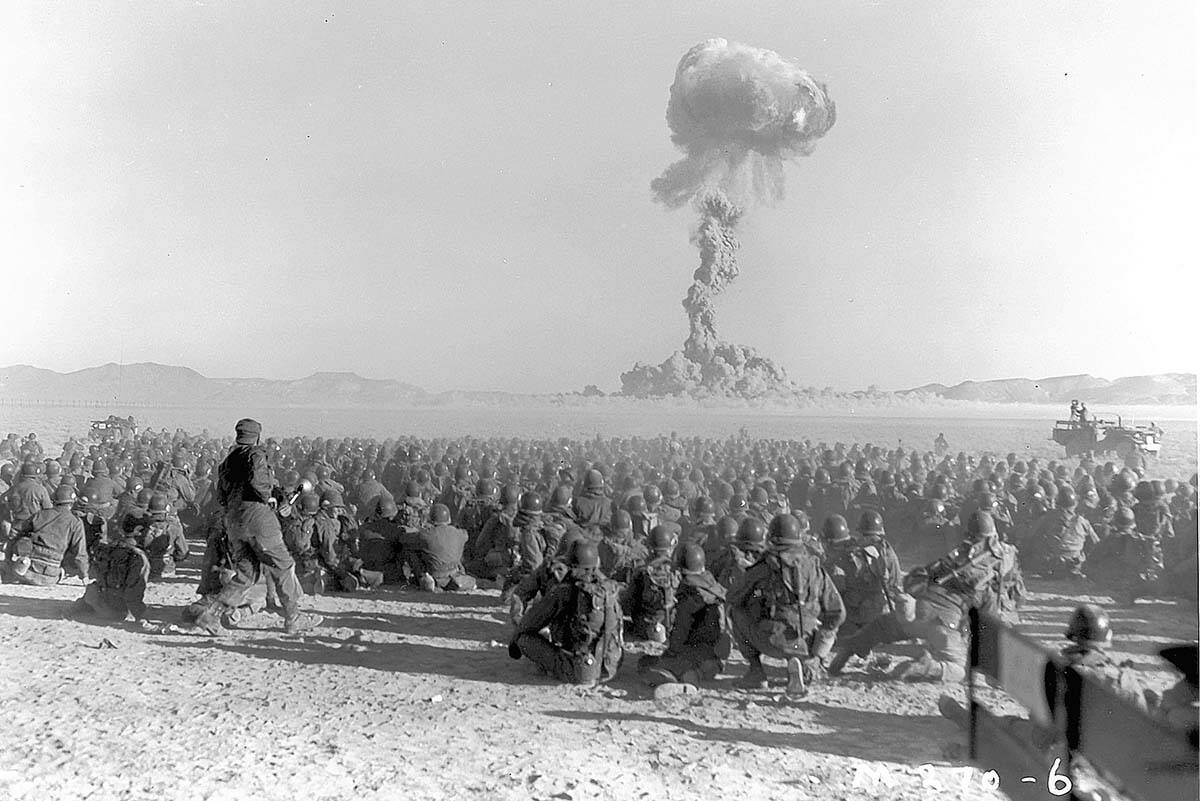RICH LOWRY: Truman made right decision to drop the bomb
Eighty years ago, in one of the most consequential understatements of all time, Emperor Hirohito told the people of Japan that “the war situation has developed not necessarily to Japan’s advantage.” Whether it was justified to use the bomb constitutes one of the most controversial historical questions in American history, but it was clearly the right call.
If it’s nice to think that Imperial Japan would have decided to surrender on the same timeline without Hiroshima and Nagasaki, there is no evidence of it. The Japanese had a strong strategic commitment to defeating or inflicting a severe blow against a prospective American invasion. Then they’d have the leverage for a negotiated peace on favorable terms. The A-bomb scuppered these plans.
Critics of President Harry S. Truman’s decision have suggested it was the start of a Soviet invasion at the end that convinced Imperial Japan to capitulate. Or, if only we’d offered more temperate terms rather than demanding unconditional surrender, Tokyo would have been much more reasonable. In his definitive account, “Downfall: The End of the Imperial Japanese Empire,” Richard Frank dismantles these notions, noting that nothing in the record supports them.
In his message, Hirohito said that “the enemy has begun to employ a new and cruel bomb, causing immense and indiscriminate destruction, the extent of which is beyond all estimation.” The Japanese prime minister at the end of the war, Kantaro Suzuki, recalled in December 1945 that the war cabinet didn’t believe the Americans could win the war based on air power alone. Then, the atomic bomb demonstrated that, to the contrary, the United States “need not land,” and “so at that point they decided that it would be best to sue for peace.”
Even after Hiroshima and Nagasaki there were divisions in the war cabinet about surrender, which is why the intervention of the emperor was necessary. There was still resistance after he made his decision and a coup attempt.
The end of the war made unnecessary a U.S invasion that could have meant hundreds of thousands of American casualties; saved millions of Japanese lives that would have been lost in combat on the home islands and to starvation; cut short the brief Soviet invasion (that alone accounted for hundreds of thousands of Japanese deaths); and ended the agony that Imperial Japan brought to the region, especially a China that suffered perhaps 20 million casualties.
It is telling that we used the bomb to bring an end to a terrible war and didn’t use it to dominate Europe, or for other cynical purposes. Instead, our nuclear umbrella became part of a security arrangement that endured for decades, defending the free world from the Soviets and preventing the reccurrence of world war.
Now, with further nuclear proliferation in prospect and the chances of great power conflict rising, it is becoming more likely that nuclear weapons will be used again. This is why President Donald Trump’s vision of a Golden Dome to protect the United States from missile attacks is so important, and why we need a robust nuclear force to deter our enemies.
Eighty years ago, the atom bomb was the peacemaker in a horrific conflict that killed millions. Next time, it could be an instrument in the hands of an irrational regime or rival nation bent on the destruction of American power. Beware.
Rich Lowry is on X @RichLowry.

















